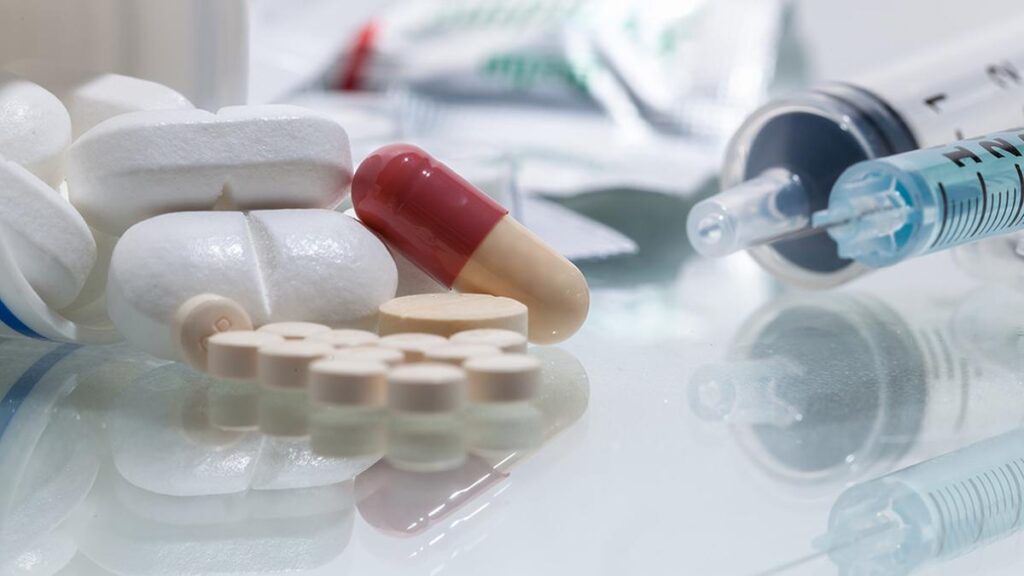
Photograph used for representational purposes only
| Photo Credit: Getty Images
Earlier this week, German manufacturer Boehringer Ingelheim’s patent to manufacture Empagliflozin, a medication to treat type 2 diabetes mellitus, expired in India. Empagliflozin is sold under the brand name Jardiance.
“Empagliflozin belongs to the SGLT-2i group of drugs. (Sodium glucose transporter inhibitor) drugs. These drugs have shown multiple benefits, including weight loss, control of diabetes, prevention of heart failures, heart attacks and kidney damage, said V. Mohan, chairman, Dr. Mohan’s Diabetes Specialities Centre, Chennai. “Now that the drug is going off patent, it will be prescribed more,” he said.
Until the year 2000, Indian diabetologists prescribed only three classes of drugs – metformin, sulfonylureas and insulin. But these medications can cause hypoglycaemia. During this time, research to improve the control of diabetes was ongoing, and gliptins and gliflozins were the answers. These two new classes of drugs not only controlled blood sugar without causing hypoglycaemia, but also protected the heart and kidneys. Gliptins were introduced in 2006 but were expensive. A few years ago the manufacture of these drugs became universal.
Drastic price fall
With the end of patent, the price of 25mg tablet of empagliflozin which until till now cost ₹70 per tablet, could cost ₹15 to ₹20. A 10mg tablet will cost ₹10 to ₹15, surmised diabetologist A. Panneerselvam. “As a clinician, if 100 patients needed it, I would prescribe it for only 10 patients, because of the cost factor. Now we will recommend it for all patients who will benefit,” he said.
The expected fall in price however, does not translate into a panacea for the ailment, he cautioned. People must adhere to diet and exercise advice, he pointed out.
What is the drug Empagliflozin?
Empagliflozin, marketed as Jardiance, is a drug for type 2 diabetes mellitus, manufactured by Boehringer Ingelheim, a pharmaceutical company headquartered in Germany.
It is used as an adjunct to diet and exercise, to improve glycemic control and reduce the risk of cardiovascular death in patients with established cardiovascular disease, as per its website.
The patent for the drug expired on March 11, and reports indicate multiple generics are expected to hit the market, at lower prices
The India diabetes care drugs market was estimated to be worth USD 1.7 billion in 2024 and is expected to reach USD 2.01 billion by 2029
Cardiac benefits
Rajaram Anantharaman, consultant cardiologist with Kauvery Hospital said research on the drug had revealed its protective effects for the heart. Studies showed that the drug helped people at risk for heart disease even if they did not have diabetes. “In the past 20 years we had no new major heart medication. These SGLT 2 inhibitors prevent glucose absorption in the kidney. The fluid collection in the lung is therefore reduced, and hospital admission with heart failure comes down. Overall deaths also drop,” he explained.
Cardiologists use four different medications for heart failure. They are beta blockers, ARNI inhibitors, mineralocorticoid receptor antagonists and SGLT2 inhibitors. The other three drugs are already available in generic form, Dr. Rajaram said. “We call them the four pillars of heart failure (treatment). With empagliflozin becoming cheaper, the medications will reduce symptoms, deaths and hospitalisations. “We do have a lot of heart failure patients in India. This drug will help in terms of symptoms and improving quality of life,” he added.
Benefits for the kidney
Rajan Ravichandran, senior consultant nephrologist with MIOT, said: “For some unknown reason the drug also protects the kidney. The drug’s mechanism reduces protein leak into urine. When sugar is removed along with water, the heart function will improve. Once the tissue oedema goes away the organ functions better. That applies to kidneys also,” he explained.
The drug was found useful in kidney disease as it helped in weight loss and prevented water retention. “Experience has shown that the drug can be used in kidney patients with or without heart failure or diabetes,” Dr. Rajan said, recalling that he had used the drug soon after it was introduced a decade ago. “When I used the drug when it first came out, on a patient, the achievement was remarkable. ” He has a word of caution: People who are thin, those with repeated urinary tract infections and those who have experienced sudden deterioration in kidney function must be careful.
“A person who takes the medicine and gets diarrhoea will become dehydrated. The drug will draw away water along with sugar. It acts as a diuretic. Persons with food poisoning should avoid the medicine as it can affect the kidneys. Those with gastroenteritis or infections in the genitals should also avoid it, Dr. Rajan said.
Published – March 14, 2025 04:46 pm IST

